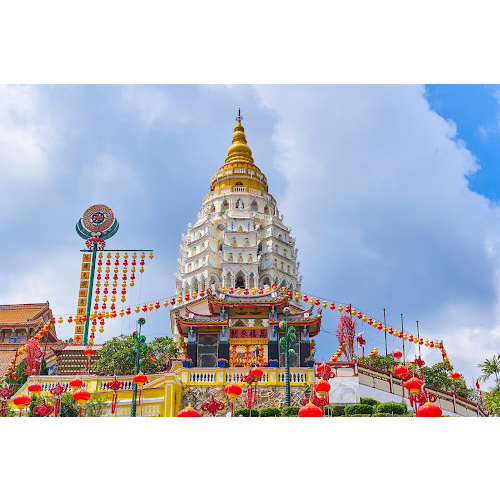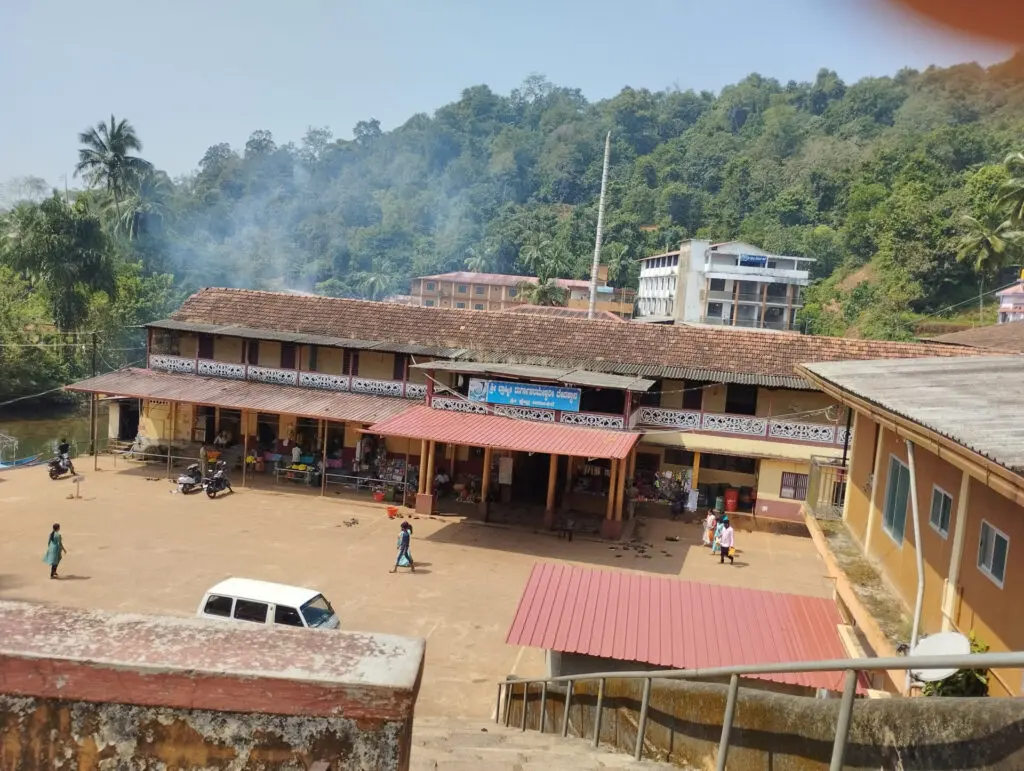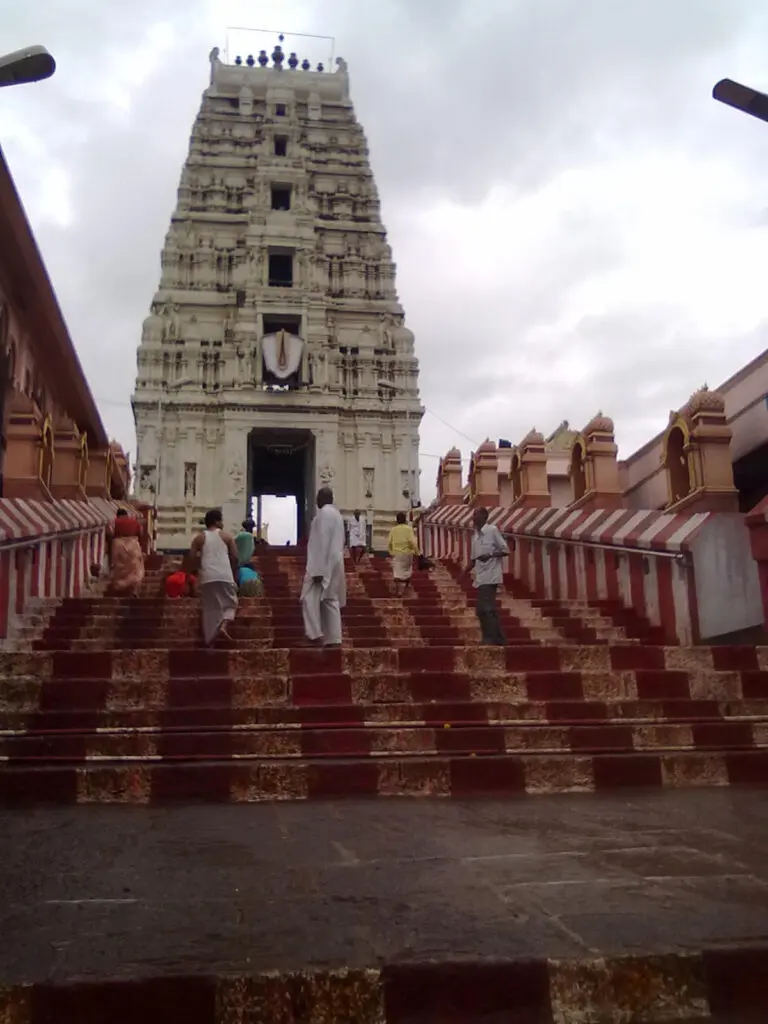India is home to diverse cultures and religions, but one of its most striking aspects is its ancient temples. One such Hindu god revered is Vishnu (The Preserver), with numerous Vishnu temples across India devoted to him – whether you want a local visit or to explore some of India’s more notable examples, you’re bound to come across one! Whether searching near home or exploring major spots across the nation there will certainly be no lack of options when looking for temples dedicated to him!
South India boasts several incredible temples dedicated to Vishnu. One such example can be found in Tamil Nadu: the Sleeping Vishnu temple with intricate carvings and sculptures is unmissable, as is Kanchipuram’s Vishnu temple which is considered one of India’s most powerful Vishnu sites.
If visiting Kerala, visit Guruvayoor Vishnu Temple; one of India’s oldest Vishnu temples. Likewise, Udupi Vishnu Varaha temple can also be an interesting destination.
History enthusiasts might enjoy visiting Gaya, Bihar for its Vishnupad Temple dating back to 3rd Century BCE as it holds one of India’s oldest known Vishnu temples – though if temple counts matter more to you it may be Lord Shiva who reigns supreme, followed closely by Vishnu.
No matter where you travel in India, Vishnu temples can always be found nearby. From South India’s iconic sleeping Vishnu temple to India’s oldest Vishnu shrine in Calcutta – and beyond! Discovering India’s Fascinating World of Vishnu Temples: Sacred Shrines for Your Discovering the Fascinating Realm of Vishnu Temples Across India and Beyond.
Table of Contents
Vishnu Temples can be found throughout India:
Tirupati Venkateswara Temple in Andhra Pradesh: Tirumala Hills’s Tirupati Venkateswara Temple attracts millions seeking God’s blessing. With an elaborate gopuram that radiates spiritual splendor, millions come each year seeking his guidance.
Badami Cave Temples of Karnataka: These spectacular rock-carved ancient temples boast breathtaking sculptures that represent Lord Vishnu’s Varaha avatar, which symbolizes good’s triumphant victory against evil.
Ranganathaswamy Temple, Tamil Nadu: Situated within Srirangam Island and dedicated to Ranganatha – Vishnu in his reclining form – this Temple stands as an outstanding example of Dravidian architecture with its high rise gopurams that showcase Dravidian architectural styles.
Dwarakadheesh Temple in Gujarat: Widely held to be Lord Krishna’s Kingdom, Dwarakadheesh Temple serves as an eternal reminder. Within its walls lies Krishna as Vishnu in physical form – making this an impressive testimony.
Puri Jagannath Temple of Odisha: Although primarily dedicated to Jagannath Vishnu’s manifestation through Krishna, its Rath Yatra festival attracts with its vibrant celebrations.
Outside India are Temples dedicated to Shiva that were established:
Angkor Wat in Cambodia: Once home to Vishnu worshipers, this impressive complex now stands as a testament to Khmer history and culture, decorated with reliefs depicting Hindu epic tales. Angkor Wat has come to symbolize Cambodia’s historic and spiritual past.
Prambanan Temple in Indonesia: This magnificent Shiva temple stands among temples dedicated to Brahma and Vishnu that illustrate harmonious relations among Hindu deities.
Vishnu Temples are vital to society and offer more than architectural splendor – they serve as spiritual refuges as well. Vishnu’s avatars embody ideals and values which encourage their devotees to lead meaningful lives.
List and Location of Vishnu Temples in North India (India):
Vishnupad Temple of Gaya Bihar: This revered shrine houses what many consider a footprint that represents Lord Vishnu. Sacred site used for ancestral rites.
Udupi Sri Krishna Temple of Karnataka: This unique God of Lord Krishna draws visitors with his captivating depiction holding both an iron rod and rope around his wrists – something not easily found elsewhere! The entire experience leaves visitors spellbound!
Guruvayur Temple in Kerala: Devoted to Lord Krishna, this timeless sanctuary welcomes visitors seeking tranquillity within its divine environment.
Nathdwara Shrinathji Temple of Rajasthan: Shrinathji is an alluring manifestation of Krishna that attracts devotees with his innocent charm and tender embrace.
Location and details about 20 Lord Vishnu temples:
| Temple Name | Location | Uniqueness |
| Tirupati Venkateshwara Temple | Tirumala Hills, Andhra Pradesh, India | Revered worldwide for its architectural design and spiritual significance. |
| Ranganathaswamy Temple | Tamil Nadu, India | Intricately-carved gopurams embodying Dravidian architecture. |
| Guruvayur Temple | Kerala, India | Houses an immovable Krishna idol with unique rituals and celebrations. |
| Udupi Sri Krishna Temple | Karnataka, India | Idol faces west, Kanakana Kindi window depicts Krishna’s love for devotees. |
| Badrinath Temple | Uttarakhand, India | Set against the backdrop of Himalayan mountains, dedicated to Badrinarayan (Vishnu’s form). |
| Nathdwara Shrinathji Temple | Rajasthan, India | Attractive idol of Shrinathji depicting Krishna raising Govardhan. |
| Puri Jagannath Temple | Odisha, India | Known for Rath Yatra festival symbolizing Lord Jagannath’s travels. |
| Vaikuntha Perumal Temple | Tamil Nadu, India | Intricately-carved symbols depicting Vishnu’s forms. |
| Sri Padmanabhaswamy Temple | Thiruvananthapuram, Kerala, India | Idol sitting on an Ananta of snake’s coil, portraying Lord Vishnu’s cosmic nature. |
| Angkor Wat | Cambodia | Khmer architectural grandeur, originally a Vishnu shrine, adorned with intricate relief carvings. |
| Prambanan Temple | Central Java, Indonesia | Dedicated to Vishnu, Brahma, and Shiva, showcasing Trimurti. |
| Badrinath Temple (Nepal) | Near Muktinath, Nepal | Revered by Hindus, Buddhists, and Vaishnavites, a symbol of harmony across communities. |
| Kanchipuram Varadaraja Perumal Temple | Tamil Nadu, India | Rare statue that can alter its position over time, known as Deiva Nayakar. |
| Deogarh Dashavatar Temple | Uttar Pradesh, India | Ten panels depicting each avatar of Vishnu, beautifully carved. |
| Srikurmam Kurmanathaswamy Temple | Andhra Pradesh, India | Features an original tortoise-shaped statue commemorating Kurma avatar. |
| Simhachalam Narasimha Swamy Temple | Andhra Pradesh, India | Narasimha’s face rising from rock, located in Visakhapatnam. |
| Koodal Azhagar Temple | Tamil Nadu, India | Three separate sanctums with statues of Vishnu in different positions. |
| Sri Lakshmi Narasimha Swamy Temple | Mangalagiri, Andhra Pradesh, India | Hilltop temple with steps representing life’s difficulties. |
| Ranganathar Temple | Tamil Nadu, India | Unique with seven circular enclosures. |
| Shri Varaha Lakshmi Narasimha Swamy Temple | Simhachalam, Andhra Pradesh, India | Devoted to Varaha and Narasimha on a peaceful hilltop. |
Facts About Lord Vishnu:
“Lord Vishnu Is An Enigma”:
Lord Vishnu of Hinduism is revered as part of its Holy Trinity and celebrated for reestablishing order throughout creation through divine avatars known as avatars he sends down on Earth to do just this task – such as Rama or Krishna who represent our ever-present consciousness and thus must return it in some fashion to its natural state. Vishnu himself often sports distinctive characteristics including conch (shankha), discus (chakra), mace (Gada), and lotus petals (padma), all symbolically representing his divine influence over all creation.
Architectural marvels and spiritual retreats:
Vishnu temples can be found throughout India with various architectural styles that reflect their respective areas of influence, from Nagara styles found in North India to Dravidian styles found in South India and embellished further by stairs with intricately carved pillars, gopurams (entrance towers) or sacred shrines where devotees can commune with god and feel his or her spiritual presence.
Spiritual Teachings in Stone:
Vishnu temples not only present beautiful architecture, but they also teach profound spiritual lessons through intricate reliefs and sculptures depicting stories from ancient epics like Mahabharata or Ramayana or providing philosophical insights from scripture such as Bhagavad Gita. Each work serves as an inspirational source and moral compass.
Vishnu Sahasranama “The Garland of Thousand Names”:
Vishnu temples around India often sing the revered Vishnu Sahasranama hymn which praises Lord Vishnu by name and celebrates all his attributes from Mahabharata epic poem, including being known for being his cosmic protector and presence everywhere on Earth. This divine composition from classical India explores and honors his qualities while extolling them to show respect.
Festivities to Celebrate Devotion:
Vishnu temples become lively when festivals are observed with pride and worship is combined with cultural activities. Festivals such as Janmashtami or Rama Navami mark the birthdays of avatars such as Jannathannath or Rama Navami to remind devotees about their messages and teachings; Rath Yatra at Puri Jagannath Temple or Tirupati Balaji Temple provide vivid examples of cultural and religious dedication in action.
Unity within Diversity:
Vishnu temples represent unity through diversity. From Cambodia’s iconic Angkor Wat to Indonesia’s Prambanan Temple, Vishnu’s universal appeal can be felt across cultures and borders; each Vishnu temple stands as testimony of man’s common desire to connect with his higher power through worshipping him.
At Vishnu temples, devotees will experience rituals that immerse them in an ocean of devotion. Scent of incense, rhythmic chanting and flower offerings create an air of spirituality; prayers or Aarti (ritualistic worship) strengthen that bond further between devotee and Lord.
Conclusion
Vishnu temples provide a spiritual pilgrimage destination. From their architecture and devotional practices in South India to Cambodia’s historical wonders; all Vishnu temples echo with divine energy that spans cultures and time periods alike. Their intricate designs reflect devotional depth while their stories remind us that humans long for communion with their deity – walking among these holy places reminds us to cherish faith as part of an ongoing quest for higher knowledge.




